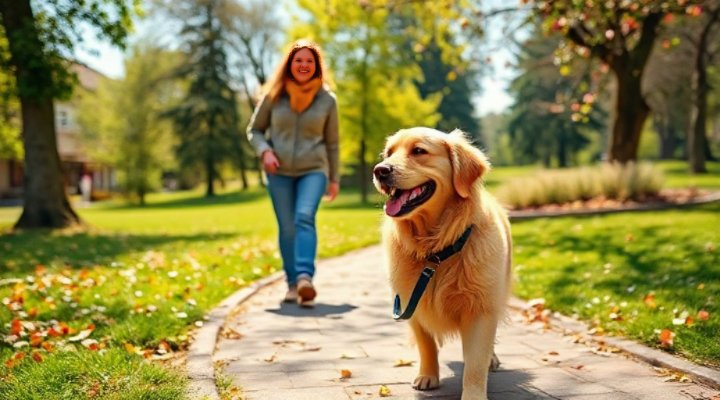Teaching your dog to walk on a leash without pulling is one of the most important skills you can master as a pet owner. Not only does it make walks more enjoyable, but it also ensures the safety of both you and your furry friend. In this guide, we’ll walk you through easy steps to train your dog to walk politely on a leash, whether you’re starting with a puppy or an adult dog.

Why Leash Training is Important
First and foremost, leash training is about safety. A dog that pulls on the leash can easily escape or get into dangerous situations. Moreover, it can lead to injuries for both the dog and the owner. For example, a sudden pull can cause strain on your arm or even knock you off balance. On the other hand, a well-trained dog will walk calmly by your side, making every outing a pleasant experience.
Additionally, leash training strengthens the bond between you and your dog. It establishes you as the leader and builds trust. If you’re looking for more tips on dog behavior, check out our guide on how to stop your dog from pulling on the leash.

Getting Started with Leash Training
Before you begin, make sure you have the right equipment. A sturdy leash and a comfortable harness or collar are essential. Avoid retractable leashes, as they can encourage pulling. Instead, opt for a fixed-length leash that gives you better control.
Start by introducing your dog to the leash indoors. Let them sniff it and get used to wearing it. Reward them with treats and praise to create positive associations. Once they’re comfortable, attach the leash and let them walk around the house with it. This step is crucial for puppies, as explained in our puppy obedience classes guide.

Teaching Your Dog to Walk Without Pulling
The key to successful leash training is consistency and patience. Begin in a quiet, distraction-free environment. Hold the leash loosely and start walking. If your dog starts to pull, stop immediately. Wait for them to come back to your side, then reward them with a treat and continue walking.
Another effective technique is the ‘red light, green light’ method. When your dog pulls, stop (red light). When they relax the tension on the leash, continue walking (green light). This teaches them that pulling won’t get them where they want to go faster. For more advanced techniques, consider enrolling in group dog training classes.

Common Challenges and Solutions
Many dogs get overly excited when they see other dogs or distractions. To manage this, practice in low-distraction areas first and gradually increase the difficulty. Use high-value treats to keep their focus on you. If your dog is particularly reactive, our article on boarding for reactive dogs might offer additional insights.
Remember, every dog learns at their own pace. Don’t get discouraged if progress is slow. Celebrate small victories and keep training sessions short and fun. For more expert advice, the American Kennel Club offers excellent resources on leash training.

Final Thoughts
Leash training is a journey, but with patience and consistency, your dog will soon be walking politely by your side. Remember to reward good behavior, stay calm, and enjoy the process. After all, walks are meant to be fun for both of you!
For more tips on dog training, explore our best leash recommendations and other training guides.
